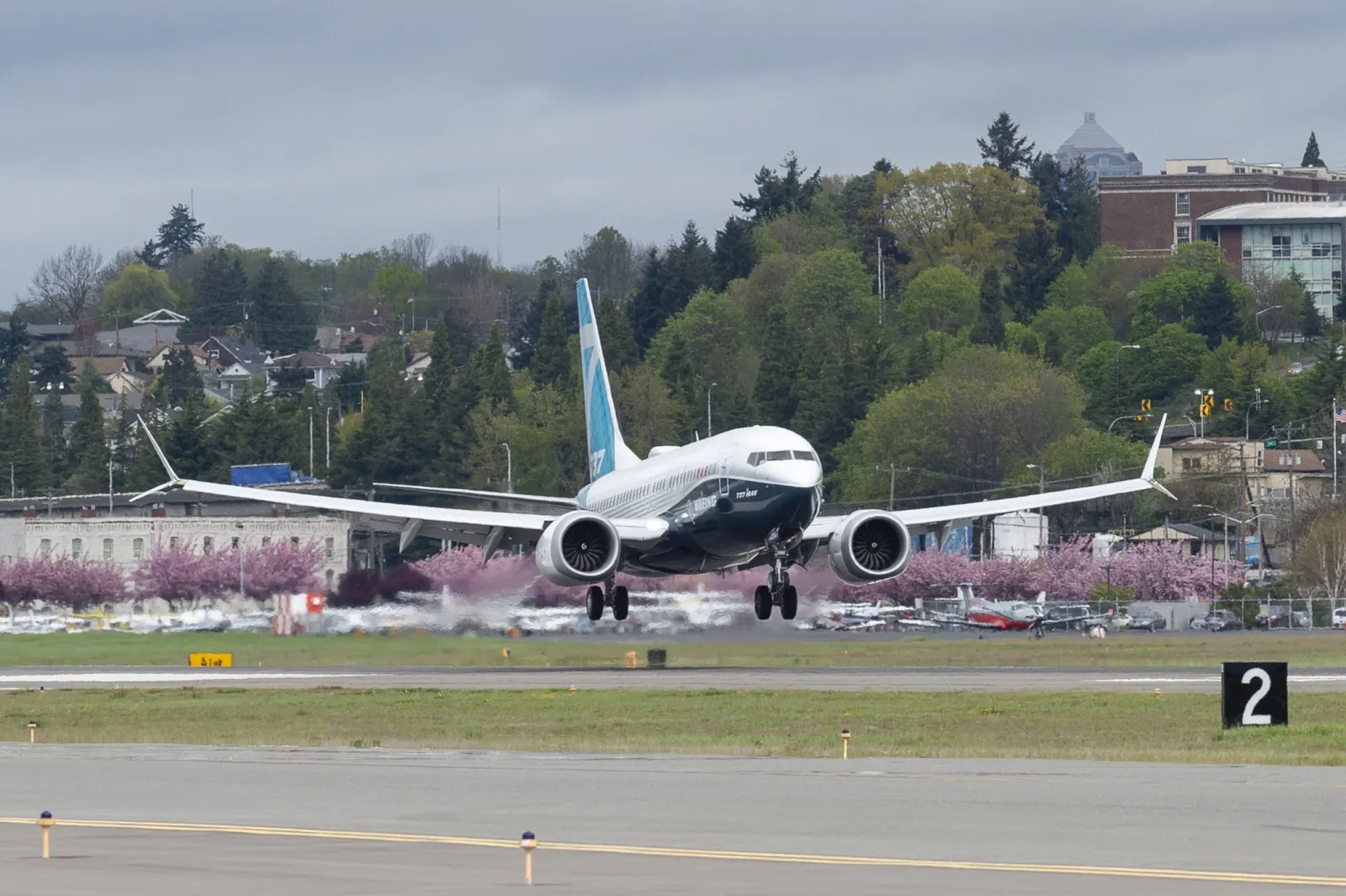
Boeing completes final engineering test flight for 737 MAX update
Apr 18, 2019

Boeing has successfully completed the final engineering test flight for the 737 MAX update, marking a significant milestone in the aircraft's development. This flight is part of a comprehensive process aimed at enhancing the aircraft's safety and performance features. The testing involved various scenarios to ensure that the updates function as intended and meet regulatory standards. With this achievement, Boeing is one step closer to securing the necessary approvals to return the updated 737 MAX to commercial service. The company remains focused on delivering a reliable and efficient product that meets the needs of airlines and passengers alike.
The recent completion of the final engineering test flight for the "Boeing 737 MAX update" marks a significant milestone in the aircraft's development. This update is crucial for enhancing safety and performance, following the previous grounding of the aircraft model. The engineering test flight is a pivotal step before the aircraft returns to commercial service.
Understanding the 737 MAX Update
The "Boeing 737 MAX update" includes numerous improvements and modifications aimed at addressing earlier safety concerns. Key features of this update involve software enhancements, hardware upgrades, and rigorous testing protocols designed to ensure the aircraft operates at optimal levels. These updates are particularly important for maintaining the confidence of airlines and passengers alike.
Engineering Test Flight Details
The final engineering test flight was conducted under stringent conditions to evaluate the aircraft's performance and validate the updates. Boeing's engineering team, alongside regulatory authorities, monitored various performance metrics, including:
| Performance Metric | Test Results |
|---|---|
| Stability | Passed |
| Control Responses | Optimized |
| Fuel Efficiency | Improved |
| Noise Levels | Reduced |
These metrics are crucial as they directly affect the aircraft's operational capabilities and compliance with international aviation standards.
The Importance of Safety Enhancements
Safety enhancements are at the forefront of the "Boeing 737 MAX update". The previous incidents that led to the grounding of the MAX have left a lasting impact on Boeing's reputation and the aviation industry as a whole. As such, the company has prioritized safety in this update, implementing a suite of measures that include:
- Enhanced flight control systems
- Improved pilot training programs
- Continuous monitoring systems for real-time data analysis
These enhancements not only aim to comply with regulatory requirements but also to rebuild trust with airlines and passengers, critical for the "Boeing 737 MAX update"'s future success.
Regulatory Approvals and Future Steps
Following the completion of the final engineering test flight, the next step involves obtaining regulatory approvals. Boeing has been working closely with the "Federal Aviation Administration (FAA)" and other global aviation regulators to ensure that all aspects of the aircraft meet safety standards. This process is thorough and involves multiple stages of review and assessment.
Once the necessary approvals are secured, Boeing can begin the process of returning the "737 MAX" to commercial service. Airlines are eagerly awaiting the aircraft's return, as it represents a vital component of their fleets, especially for short- to medium-haul routes.
Market Implications of the 737 MAX Update
The "Boeing 737 MAX update" is expected to have significant implications for the aviation market. Airlines that operate the MAX will likely benefit from the updated features, which can enhance passenger experience and reduce operational costs. Additionally, the improvements in fuel efficiency and noise reduction will align with the growing demand for more environmentally friendly travel options.
As airlines begin to reintroduce the MAX into their fleets, the competitive landscape may shift, with airlines that prioritize modern and efficient aircraft gaining a distinct advantage. This is particularly relevant as the industry rebounds from the impacts of the COVID-19 pandemic, which has shifted passenger expectations and operational necessities.
Boeing's Commitment to Innovation
Boeing's successful completion of the "final engineering test flight" for the "737 MAX update" underscores the company's commitment to innovation and safety. As they move forward, Boeing aims to leverage the lessons learned from past challenges to inform future designs and improvements across its aircraft portfolio.
In conclusion, the culmination of the engineering test flight represents not just a technical achievement but also a pivotal moment in Boeing's journey to restore its reputation within the aviation industry. With an emphasis on safety, efficiency, and passenger satisfaction, the "Boeing 737 MAX update" is set to play a significant role in shaping the future of commercial aviation.
Conclusion
The "Boeing 737 MAX update" is a comprehensive effort to enhance safety and performance, and the successful completion of the final engineering test flight is a testament to Boeing's dedication to excellence. As the regulatory process unfolds and airlines prepare for the aircraft's return, the industry watches closely to see how these updates will impact the future of air travel.
Related Articles

Explore Thailand: The Best Islands to Visit for Paradise, Adventure, and Relaxation

The Ultimate Guide to the Best Islands in Thailand for Your Next Getaway

Do babies need passports? How to get a passport for a newborn

How to get a U.S. passport fast: here’s how to expedite the process

What is Mobile Passport Control: 5 reasons why you should use it

SENTRI vs. Global Entry: A detailed guide

Do you need a passport to go to the Bahamas? Let’s find out

Do you need a passport to go to Mexico? A detailed guide

Do you need a passport to go to Canada? We got the answer

Do You Need a Passport for a Cruise: An Essential Travel Guide

Booster Seat Requirements: All the Rules to Follow in Your Rental Car

What Are the World’s Most Powerful Passports, and How Does Yours Rank?

How to Take a Passport Photo at Home: A Helpful Guide

You've got to have heart! Southwest's new livery

Your opinion: Should water be free on low cost carriers?

Young women bolder than guys as solo travellers
